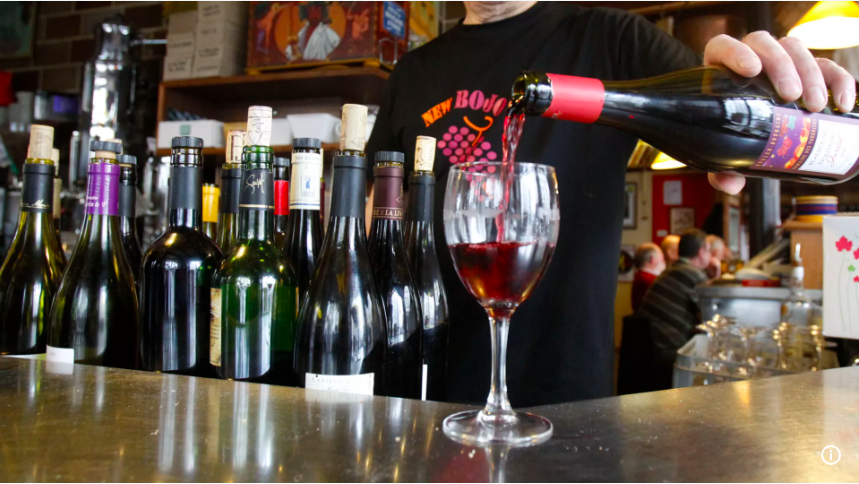“The Rebranding Alcohol Wine with New and Public Health Raise the Alarm”

EU's 'Alcohol Light' Wine Label Sparks Health Concerns and Labelling Controversy
A controversial loophole in the European Union’s proposed rebranding rules for no- and low-alcohol wines is raising red flags among public health advocates and consumer protection groups. The new rules could allow wines stronger than the average beer or low-alcohol cocktail to be marketed under the misleading term “alcohol light,” potentially influencing consumer behaviour and undermining responsible drinking efforts.
The Proposal: Rebranding Wine with New Labels
The European Commission’s latest wine policy package includes new labelling categories such as “alcohol-free,” “0.0%,” and “alcohol light” for wines that have undergone dealcoholisation. Under the proposed rules, the label “alcohol light” would apply to wines with an alcohol content above 0.5% but at least 30% lower than the minimum alcohol strength required for that wine type before dealcoholisation.
This means that a wine originally containing 8.5% alcohol (the minimum legal requirement for standard wines in the EU) could be reduced to around 5.95% alcohol by volume and still be labelled “alcohol light.” Similarly, dealcoholised versions of stronger liqueur wines, which start at 15%, could contain up to 10.5% alcohol and carry the same label.
Stronger Than a Beer, But Still Called 'Light'
What concerns critics is that these so-called “alcohol light” wines could end up being stronger than widely consumed drinks like lager beers (typically between 3.5% and 5.5%), wheat beers, ciders, and low-alcohol cocktails. Despite having equal or lower alcohol content, these beverages are not permitted to carry a similar “light” label under current EU rules.
This inconsistency in labelling could mislead consumers into believing wine is weaker or less harmful than it truly is. It also raises questions about fairness and transparency, with many arguing that wine is being given preferential marketing treatment.
Public Health Groups Raise the Alarm
Consumer organisations and civil society groups have reacted strongly to the Commission’s move. Eurocare, a Brussels-based NGO focused on alcohol harm prevention, accused the Commission of privileging winemakers in the consultation process while ignoring broader public health concerns.
“On which grounds did the Commission and winemakers decide this was needed and consumers wanted it?” asked Florence Berteletti, secretary general of Eurocare. She emphasised that the rules risk violating EU legislation on food information, which prohibits misleading labelling or claims that exaggerate a product’s unique qualities when they are, in fact, common.
“This openly conflicts with another set of EU rules stating that food information too consumers should not be misleading,” Berteletti said.
The Power of Labelling: A Behavioural Science Perspective
Nobel Prize-winning economist Richard Thaler has long demonstrated that simple labelling changes can drastically affect consumer behaviour—a theory known as “nudge theory.” In the case of alcohol, the use of the word “light” can significantly influence how a product is perceived, making it appear healthier, safer, or more appropriate for moderate consumption.
This labelling tactic has a controversial history. In the tobacco industry, descriptors like “light” and “low tar” were shown to mislead consumers into believing such products were less harmful. Both the World Health Organisation (WHO) and the US Food and Drug Administration (FDA) eventually condemned and banned these terms in many countries.
Similar dynamics are at play in the alcohol industry, particularly in the US where major beer brands like Coors and Budweiser successfully popularised “light beer” in the 1970s. While those products generally contain around 4.2% alcohol—less than what the EU would classify as “alcohol light” in wine—they capitalised on the term’s marketing potential.
Risk of Misperception Among Vulnerable Groups
Recent research has shown that while descriptors such as “low” or “super low” reduce product appeal, they do little to improve consumer understanding of actual alcohol content. However, the label “alcohol light” might have the reverse effect—making beverages with a relatively high alcohol content seem safer or even health-conscious.
Such labelling could particularly appeal to younger consumers, fitness-conscious individuals, or those attempting to moderate their drinking. Public health experts fear that this could drive increased consumption and undermine campaigns aimed at reducing alcohol-related harm.
Looking Ahead: Balancing Industry and Public Health
As the European Commission pushes forward with its wine labelling overhaul, the clash between economic interests and public health priorities is becoming increasingly visible. Critics argue that the current proposal reflects more of an industry-driven agenda rather than a consumer protection strategy.
Calls are growing for the Commission to revisit its approach, involve a wider range of stakeholders in consultations, and ensure that all food and drink labelling adheres to the principles of fairness, transparency, and public health responsibility.
Ultimately, whether the term “alcohol light” remains part of the EU’s new wine labelling lexicon may depend on the Commission’s willingness to prioritise clear communication and consumer safety over marketing convenience and industry lobbying.
- Art
- Causes
- Crafts
- Dance
- Drinks
- Film
- Fitness
- Food
- Spellen
- Gardening
- Health
- Home
- Literature
- Music
- Networking
- Other
- Party
- Religion
- Shopping
- Sports
- Theater
- Wellness


